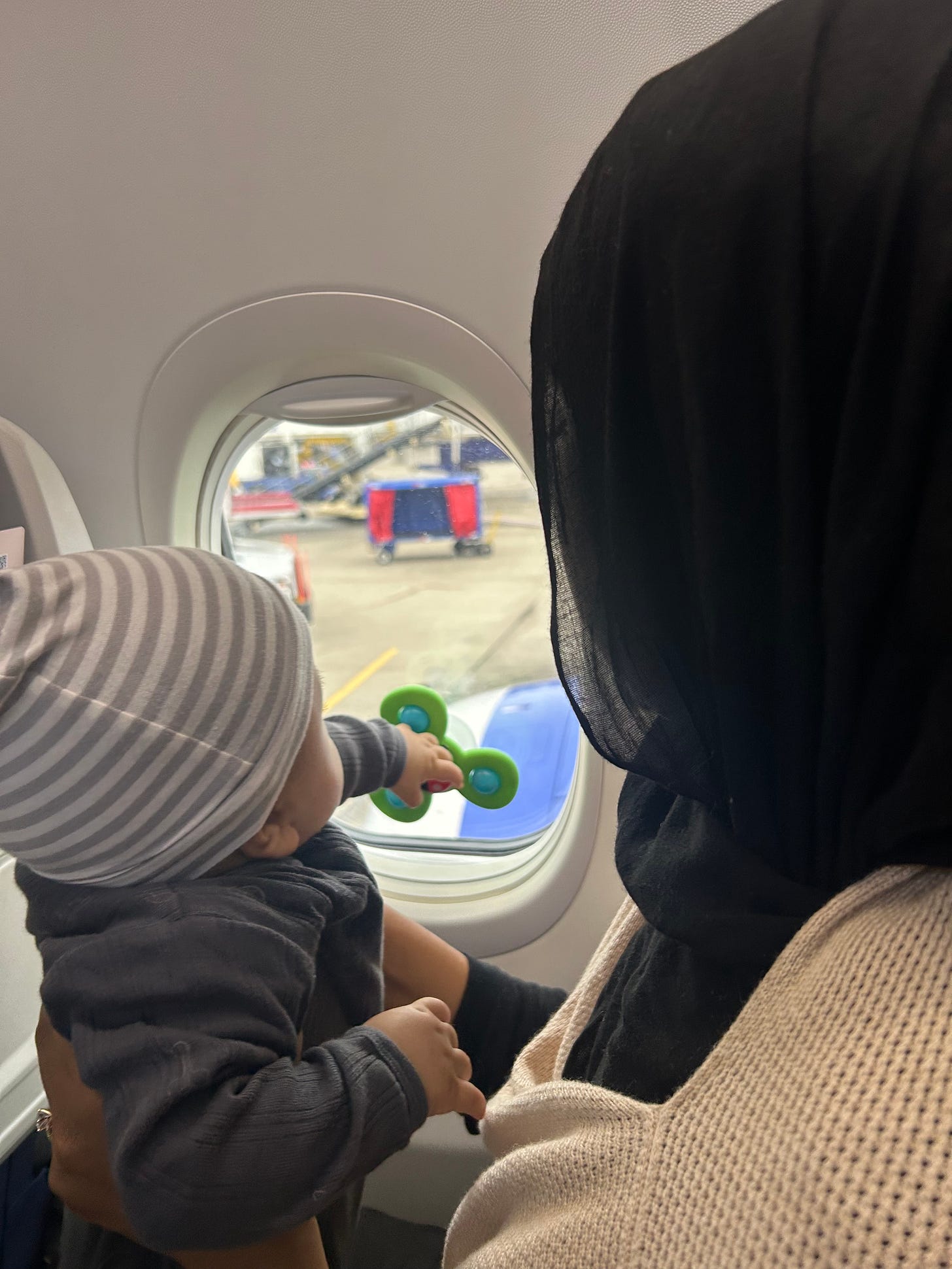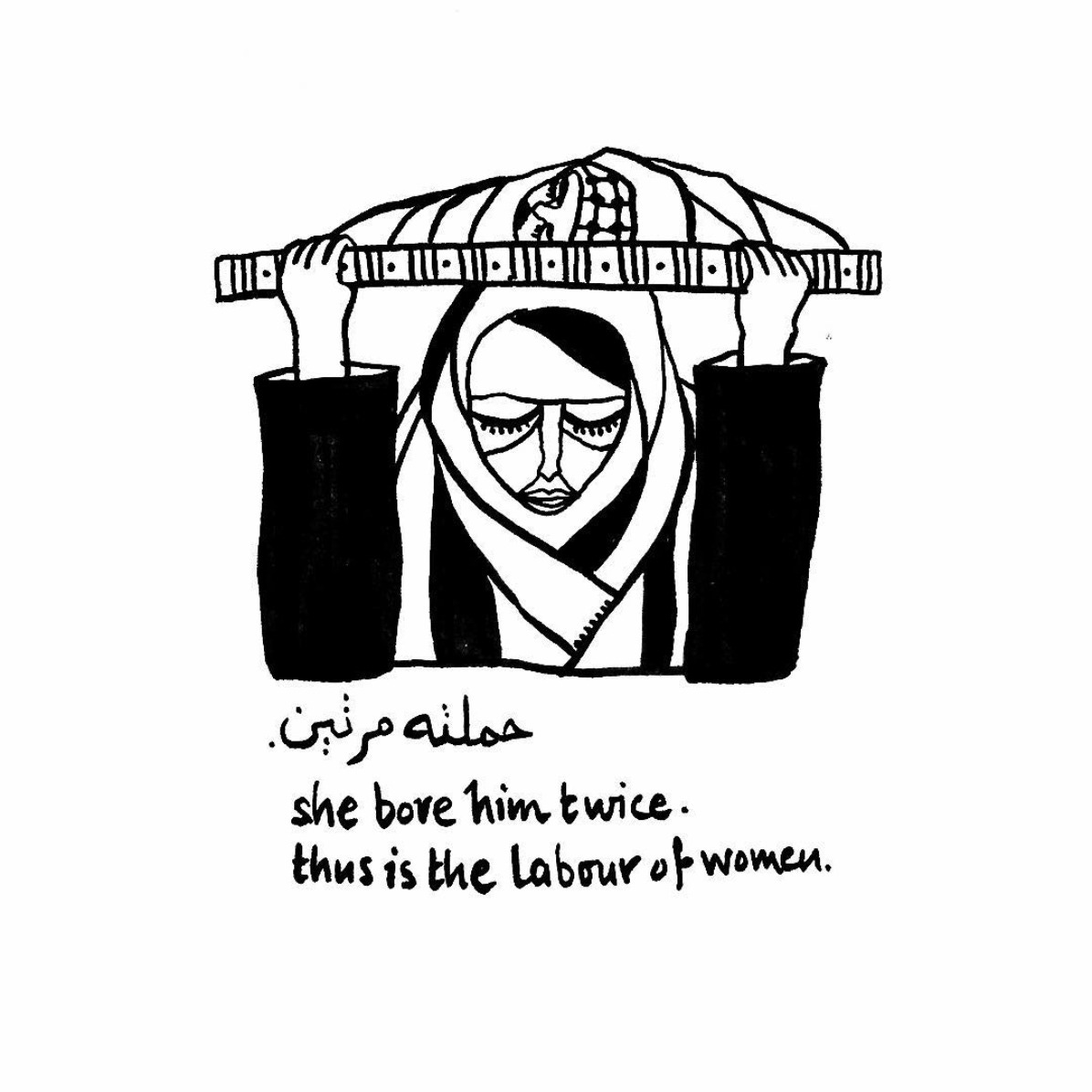my musings on motherhood 💌
a short summary of how I've been feeling about motherhood lately + my first post from The Mama Margin
I remember reading a Lucille Clifton quote: “My mother’s silences were as instructive as her words. I learned early to listen beyond what was spoken.”
Clifton wrote these words in the context of the deep loss, pain, and suffering women often carry in the shadows of motherhood. It also speaks to the unique experience I resonate with deeply of being the daughter of a woman who has struggled with what one would call a difficult life, while also being able to read between the lines and developing a natural aptitude for empathizing with the women in my life and mothers in general. It takes years of witnessing resilient women to begin hearing what goes unsaid, to “listen beyond what was spoken”.
Holding Clifton’s words in mind, I couldn’t help but reflect on the maternal figures in my own life. My mother, my grandmothers, and now myself. Becoming a mother has revealed to me the depths of sacrifice and care that I couldn’t have possibly come to know without literally bringing life into this world. I learn every day just how hard motherhood can be, new layers of challenges reveal themselves, and each time I end up on the other side, doing fine, amazed by the strength I never knew I even possessed. Motherhood is miraculous because it exhibits such a beautiful binary that isn’t common in most experiences, and that is: motherhood is incredibly rewarding as much as it is difficult. The sacrifices you make feel damn good because the purpose behind your efforts are based in a sincere and evergiving love. But the pains of motherhood are just as raw, relentless and fierce.
I now know what it is like to have two hearts, one beating in your chest and one in another little human’s body. My kiddo is a living, breathing piece of my heart. The day you become a mother, there are two births—the birth of the mother and then the child. Oftentimes, the (re)birth of the mother is overlooked, but there is such a drastic emotional transformation that happens within seconds that words cannot truly do justice to. Motherhood is love like no other, but it is also a kind of surrender. It asks you to surrender your time in a world that moves abnormally fast and is telling you that you aren’t good enough if your labor isn’t generating profit. We live in a world that rewards you for sacrificing your time with your loved ones for corporate gains, but shames you for doing what is so intrinsically essential for our survival, which is to nurture healthy family systems + raise resilient children with secure attachments and healed nervous systems. It asks of you to slow down, to honor every mundane moment and show up, because this is their childhood. This is their first time, too. The least we can give our children is that — our time. It’s funny because I often think that motherhood started knocking on my door when I needed it the most, when my life was hectic and entirely consumed by a very demanding, toxic career, brain rot, and a really bad over-consumption problem. Motherhood is teaching me to love the parts of myself I wouldn’t have dared to lay bare, to let the light in. To let go of the pain in order to make space for the love. It has shifted my priorities and my prayers, and I often find myself asking Allah (swt) to heal me in places I am unaware of that need healing, to fashion me into a better person internally and externally, so I can be the mother my little one needs and deserves.
The immense devotion I feel for my son is so overwhelming at times that I am often brought to tears at the simple sight of his smile, the sound of his babbling, or the touch of his tiny hands. By way of motherhood, the love I feel for my own mother has also profoundly increased. I can’t imagine how it must have felt to bring my brother and me into this world, this lonely, cold world, with no one by her side but my father, who had to sacrifice every fibre of his personhood to make a living for us. To understand our strengths, we have to look inward. So much of what I thought to be impossible for me, like being a mother in my 20s in a new city or navigating a career pause (due to Trump’s executive orders of all reasons), feels like a small feat compared to the struggles of my female ancestors. Both my grandmothers were single mothers throughout a huge portion of their time raising their children, with the added layer of misogyny, war, famine, and displacement — I am grateful for the conditions I am able to raise my son under and I know I can get through anything when I come from women who held on to dear life so tenaciously.
In a world rife with mass suffering and conflict, oppression and empire, I am always remembering my counterparts in other places around the world: the mothers of Gaza, Sudan, Yemen, Iran, and so many more places where mothers are bearing the brunt of instability and scarcity as they try to keep their children alive. No mother deserves to endure such cruelty, as if motherhood is not rigorous enough — these mothers are fighting tooth and nail for the very essence of life.
Just last week, Muslims celebrated Eid al Adha, which is known as the Feast of Sacrifice. It is one of my favorite devotional seasons in the Islamic calendar because millions of Muslims from around the world also perform their Hajj rituals in the holy city of Mecca, where they also commemorate one of the most ancient tales of a mother’s love — the story of Hajjar (AS). Mother of Ismail (Ishmael) and wife to Ibrahim (Abraham), she was faced with great adversity and suffering when she found herself stranded in the barren desert with no food or water, but she didn’t give up. She was diligent in her tawakkul (trust or reliance) on Allah (SWT) and ran between the hills of Safa and Marwa seven times. Surely enough, Allah (SWT) did not abandon her, and water began to gush from the earth. Hajjar’s great strength and refusal to lose hope has been immortalized as Muslim pilgrims commemorate her bravery by running between those very same hills during the Hajj rituals every year. The very same water that burst through the desert sands by virtue of Hajjar’s duas (prayers) and Allah’s (SWT) boundless mercy has provided sustenance and bounty for generations on that very same land. The water of Zamzam is a powerful metaphor that speaks to the long-term generational impacts of one singular righteous sacrifice. We owe it to the tiny humans in our lives to interrupt cycles of trauma and plant the seeds of healing.
I am thinking of the Palestinian mothers of Gaza, and how similar, if not identical, Hajjar’s story is to theirs. I am thinking of the rising rates of malnutrition in Gaza due to Israeli-imposed blockades on basic necessities. I am thinking of the droves of Palestinians being murdered on the sites of aid distribution centers. I am thinking of these Gazan mothers, who, due to a lack of access to food, are forced to gather tree leaves to feed their hungry children. These mothers are no different from Hajjar in their perseverance and in their struggles, and I am left in awe by their steadfastness in the face of this evil, genocidal machine.
And as Allah provided relief for Hajjar (AS), I have full faith that He will bestow his mercy and victory upon the mothers of Gaza — God willing, Ameen.
Thanks for reading my first post from The Mama Margin. If you’ve connected with my writing in any way, I’d be so grateful if you’d consider supporting it by becoming a paid member or share my post (see links below):








No words! 10/10 💕
this was such an incredibly beautiful read mashAllah